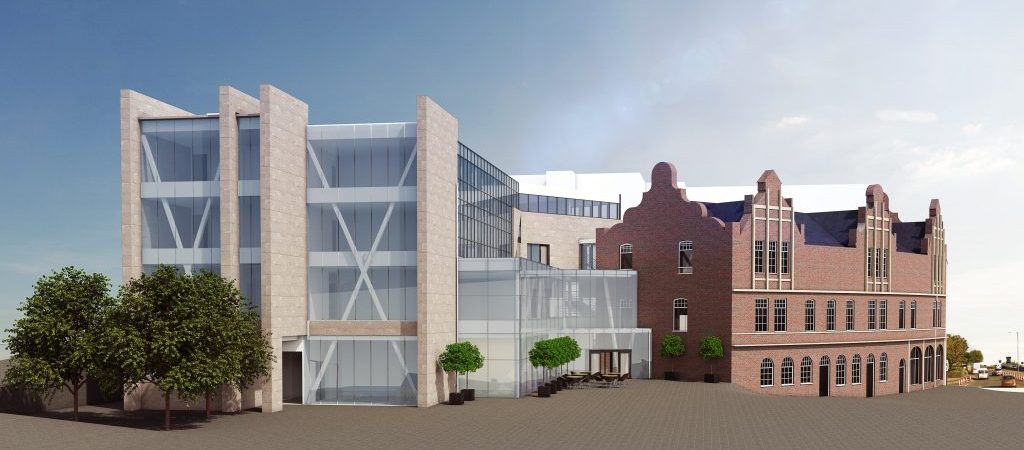
LGF update: A new creative space for innovative businesses
Construction of a new Centre for Enterprise and Innovation is progressing apace on the University of Sunderland’s City Campus. Supported by a £4.9m investment from the Local Growth Fund, the new £10m Centre will become the front door to expertise, research and facilities from the University and its partners when it opens this winter.
Initially conceived in discussions at the Sunderland Business Group, the project will create hundreds of jobs in innovative, high-growth businesses and start-ups. The Centre will provide immediate access to applied research, business advice, mentoring and knowledge transfer partnerships, as well as additional support through student work placements and graduate internships. New and growing businesses located there will benefit from high-quality workspace and from close proximity to a University that can help them flourish. There will also be a vibrant cafe, boardroom and informal meeting spaces of varying sizes.
The region’s first FabLab will relocate from its temporary home at Shackleton House to the new centre when it opens. Designers, businesses and entrepreneurs can use the creative space, equipped with specialist digital fabrication facilities to prototype and test new products ideas.
Housed in the former Gas Board building, the University of Sunderland’s plans are breathing new life into this prominent, Grade II listed red-brick building. This approach continues its impact on the Sunderland landscape, which has seen £130m invested in campus developments at its St Peter’s Riverside and City Centre Campuses.
Tony Ikwue, Director of Enterprise and Innovation said: “The University of Sunderland’s investment in the city over recent years has been substantial, with the impact for all to see. We are committed to developing our estate further, to enhance the student experience and support the city and its communities by helping drive social, economic and cultural change.”
The centre for enterprise and innovation will:
- Create more and better jobs for the North East region
- House the first FabLab for the North East region
- Attract and create hundreds of new jobs in innovative growth businesses
- Be the University’s ‘shop window’ for businesses, partners and public
- Create a buzz and vibrancy in this area of the city centre
- Return a BCR (benefit to cost ratio) of at least 6:1 – £6 for every £1 invested.
